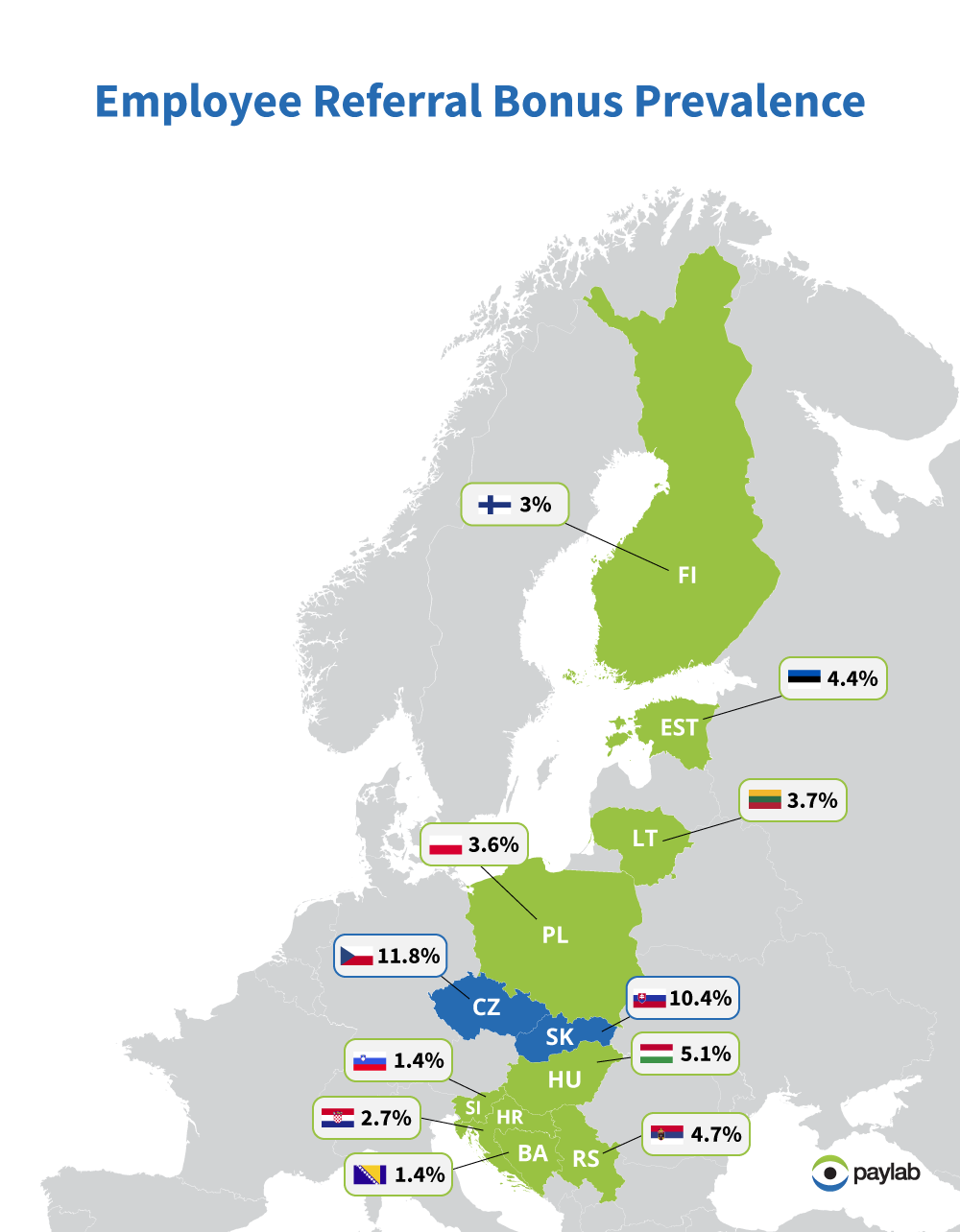How prevalent are employee referral bonuses in Central and Eastern Europe?
27 November 2017

Recommend an employee and we’ll reward you. Companies do not underestimate the strength of their employees’ social contacts. Just the opposite, they’ve begun to reward them if they help bring new and skilled help into the firm. The international salary portal Paylab.com, which continuously monitors employee benefits, determined the prevalence of referral benefits in the region of Central and Eastern Europe.
Every employee knows someone who knows someone else, and their neighbour has a guy who'd be perfect for a specialised position in your company. Maybe they aren't actively looking for work, but your employee's efforts open their eyes to a job opening and they get to thinking.
Friends and acquaintances are a major driving force behind career changes
Informal, relaxed and open communication gives a potential candidate insights into the inner workings of your company and their specific job description. Many such activities bring new people into an interview. A referral bonus is a reward if a recommended candidate becomes a full-fledged reinforcement and is retained by the company for longer than, for instance, one year.
A referral bonus, or a bonus for recommending an employee, is most prevalent in Central Europe, specifically in the Czech Republic (11.8%) and Slovakia (10.4%). These countries have hit a wall when it comes to identifying qualified employees and corporate recruitment processes tend to be drawn out and expensive. Rewarding employees for their assistance in recruiting new people to a company comes across as a win-win strategy towards alleviating these issues. The employee receives a bonus and the company gains new human capital at an overall cost savings.
Overall, referral programmes are a bit more prevalent in capital cities, which have a higher concentration of head offices with more specialised requirements on employees. For instance, this benefit is available in Bratislava to nearly 14 per cent of employees, and Prague is close behind at nearly 13 per cent.
Information technology is the industry in which referral programmes are the most widespread as these companies have long been faced with a shortage of qualified professionals.

Referral bonuses are mostly offered by foreign companies
Referral bonuses were first employed in Central and Eastern Europe by private foreign companies. They have long identified people as capital and appreciate the untapped potential offered by the social relationships of their employees, which may spread into various social circles and groups.
Up to 21 per cent of employees working for foreign companies reported a referral bonus in Slovakia. The rate in Czech Republic was up to 24 per cent of employees working for foreign corporations. The bonus for a successful referral in foreign companies is primarily a financial bonus, which is up to several months' salary in some companies. Some companies use a step system that increases a referral bonus based on the specificity and demands of the position that is filled.
A reward for personal engagement
While expenditures on employee bonuses are generous, the company ultimately saves a significant amount elsewhere on recruitment. Conversely, there are companies where employees responsible for bringing new blood into the company are provided with non-financial bonuses, such as more time off or vouchers for various products and services.
Referral bonuses are a good way for companies to build a community among employees. It is in the employee's own best interests to recommend a high-quality candidate as they are personally engaged in the entire process. At any rate, employees are continuously informed of open jobs via internal communication and the referral programme has clearly defined rules.
Contact:
Daniela Beráková, Communication & Content Manager for Paylab.com
Profesia, s.r.o., Pribinova 19, 811 09 Bratislava, Slovakia
Tel.: +421 2 32 20 91 89, Mobile: +421 905 761 264, e-mail: [email protected]

